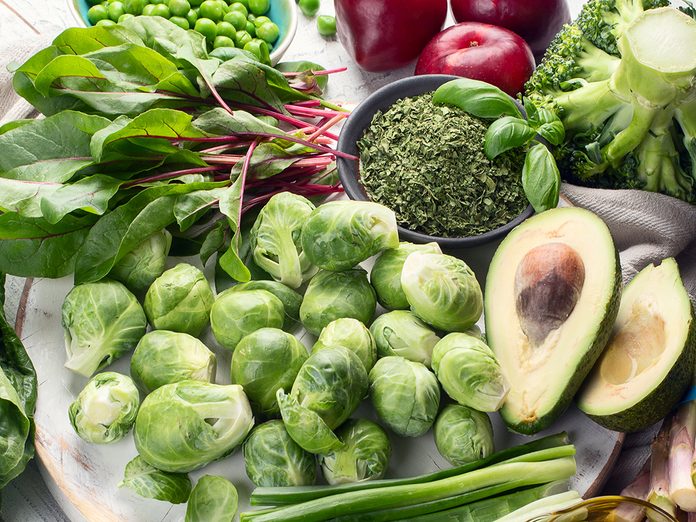
Vitamin K
Doctors have long used vitamin K, which promotes blood clotting, to help heal incisions in patients after surgery and to prevent bleeding problems in newborns. This vitamin also aids in building strong bones and may be useful for combating the threat of osteoporosis in older women.
Vitamin K1 is present in many foods, especially leafy green vegetables such as cabbage and spinach, and is also present in liver, cows’ milk, egg yolk and some cereals. Broccoli, spring onions and brussels sprouts are also good sources. Other foods with some vitamin K are pistachios, vegetable oils, lean meats, tomatoes and dairy products. The rest comes from bacteria that live naturally in the gut and make menaquinones (also called vitamin K2).
A synthetic form of vitamin K1 called phytomenadione (also known as phytonadione) is available for use in supplements. Menatetrenone is a type of vitamin K2, while menadione (vitamin K3) is another synthetic form used in some countries.
What does vitamin K do?
This single nutrient sets in motion the entire blood-clotting process as soon as a wound occurs. Vitamin K1 may also be important for cell-to-cell communication. Researchers have discovered that vitamin K2 also plays a protective role in bone health.
Benefits of vitamin K
Doctors may recommend preventive doses of vitamin K if post-surgery bleeding or haemorrhaging is a concern. Even when no deficiency exists, surgeons sometimes order vitamin K before an operation to reduce the risk of post-operative bleeding.
Consult your doctor before taking vitamin K prior to an operation, because certain types of surgery and prolonged bed rest may increase risk of unwanted blood clots. (Here’s everything you need to know about knee replacement surgery.)
How to take vitamin K
Supplemental vitamin K (more than is found in a multivitamin) should be taken only after consulting your doctor. When prescribed, vitamin K should be taken with meals because food enhances its absorption.
Vitamin E helps the body use vitamin K, but too much vitamin E-more than 1000 IU a day-taken long term may impair vitamin K function and increase your risk of bleeding.
High doses of vitamin E may counteract the blood coagulation properties of vitamin K, increasing the risk of bleeding.
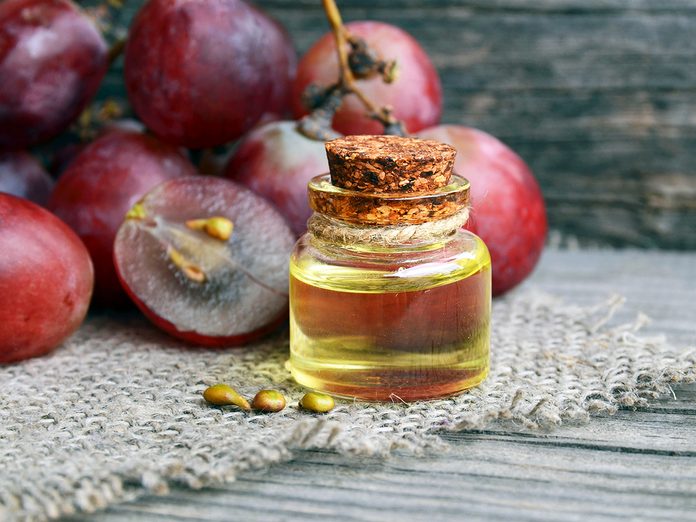
Grape seed extract
With antioxidant properties many times more powerful than those found in better-known nutrients (including vitamin C and vitamin E), grape seed extract is a heart-smart and cancer-smart botanical. It also has the power to improve vascular health, protect brain cells and increase your overall well-being in many ways, making it an ideal supplement after surgery. This extract made from the tiny seeds of red grapes is a flavonoid with potent antioxidant potential.
What does grape seed extract do?
In addition to being a powerhouse of antioxidants, grape seed extract exerts a powerful, positive influence on blood vessels. It is one of the few substances that can cross the blood-brain barrier, which means it has the potential to protect brain cells from free radical damage. It also reduces swelling after injury or surgery.
Benefits of grape seed extract
A topical preparation can improve wound healing after surgery. It may also protect the heart against damage during heart surgery.
How to take grape seed extract
Fluid extract (1:1): 20 to 40 millilitres a week.
Tablets/capsules: 12,000 milligrams of grape seed extract 2 to 3 times a day (use preparations standardized to provide 150 to 300 milligrams of PCOs daily).
After 24 hours, only about 28 percent of grape seed extract’s active components remain in the body. It’s important to take grape seed extract supplements at the same time every day.
Grape seed extract is best used with other antioxidants such as vitamin C and vitamin E (and it may help the body use vitamin E more efficiently); money-saving combination products are available.
Grape seed extract may decrease iron absorption in the intestines, so leave a gap of 2 hours between taking the supplements.
Here are the silent signs you aren’t getting enough vitamins.
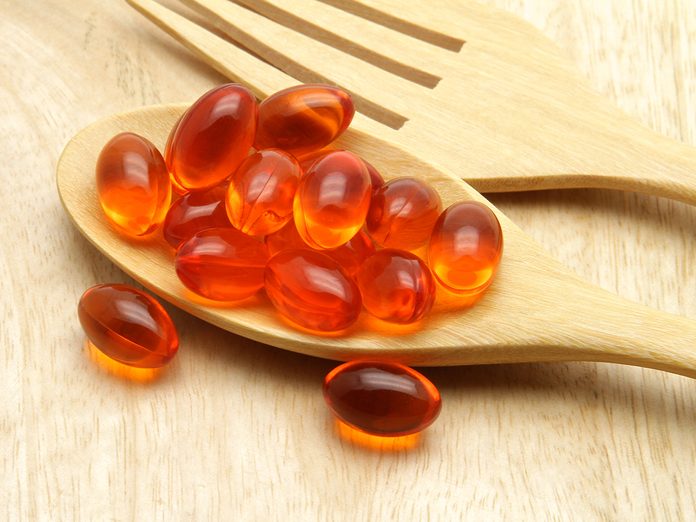
Coenzyme Q10
Coenzyme Q10, produced by the body, belongs to a family of compounds called quinones. Coenzyme Q10 is found in all living creatures and is also concentrated in many foods, including nuts and oils. Coenzyme Q10 is found in a wide range of foods, including olive oil.
What does coenzyme Q10 do?
The primary function of coenzyme Q10 is as a catalyst for metabolism—the complex chain of chemical reactions during which food is broken down into packets of energy that the body can use. Acting in conjunction with enzymes (hence the name “coenzyme”), the compound speeds up the vital metabolic process, providing the energy that the cells need to digest food, heal wounds, maintain healthy muscles and perform countless other bodily functions.
Benefits of coenzyme Q10
Coenzyme Q10 may play a role in preventing cancer, heart attacks and other diseases linked to free radical damage. It’s also used as a general energy enhancer and anti-aging supplement. Because levels of the compound diminish with age (and with certain diseases), some doctors recommend daily supplementation beginning at about 40 years of age. (Check out the 11 things you didn’t know could slow down aging.)
It also appears to aid healing and reduce pain and bleeding in those with gum disease and to speed recovery after surgery (particularly oral surgery).
How to take coenzyme Q10
After surgery, a typical dose is 100 to 150 milligrams a day. Before surgery, higher doses may be used; consult your health care practitioner. Take this supplement in the morning and evening, preferably with fatty food to enhance absorption.
Coenzyme Q10 should be continued long term; it may require 8 weeks or longer to notice results. Concurrent vitamin B6 supplements may also help.
Learn the truth behind these supplements and vitamins for memory.
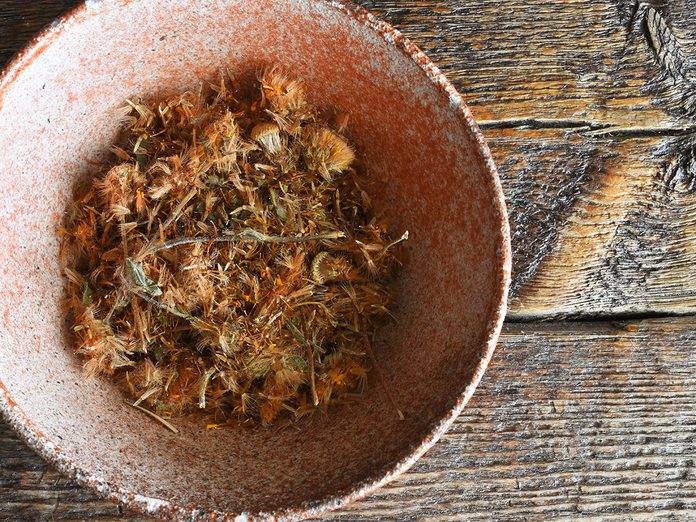
Arnica
Arnica has been used in homoeopathic medicine for hundreds of years. It can be used to relieve pain after surgery or trauma.
What does arnica do?
Arnica is thought to stimulate blood circulation and, theoretically, to raise blood pressure, especially in the coronary arteries, which supply the heart with blood. The plant is also thought to have antibacterial and anti-inflammatory properties that can help reduce pain and swelling and heal wounds after surgery. (Use these pain management strategies for everyday aches and pains.)
Benefits of arnica
Research using topical forms suggests they have anti-inflammatory properties. Topical arnica is popularly used to treat bruises and other minor traumatic injuries and there is some research evidence to support this.
How to take arnica
Oral forms: Consult your health care practitioner or package for specific directions.
Topical forms: use ointment/creams/gels that consist of 20 to 25 percent arnica tincture or 15 percent arnica oil (higher strengths may irritate skin). Alternatively use a tincture (1:10 with 70 percent alcohol). A poultice or compress can be made using the tincture diluted 3 to 10 times with water. Apply to sore areas 2 to 3 times a day, or following the manufacturer’s instructions.
Some doctors recommend taking arnica more frequently before and after surgery.
Homoeopathic preparations such as arnica are diluted at first to 1:10 or 1:100. Dilutions are then continued until desired concentrations are achieved. When a 1:10 dilution is diluted 30 times, it is said to be a 30X or 30D potency. When a 1:100 dilution is diluted 30 times, it is referred to as 30C potency. You may swallow homoeopathic doses or dissolve them under your tongue.
Check out the best vitamins for sleep.
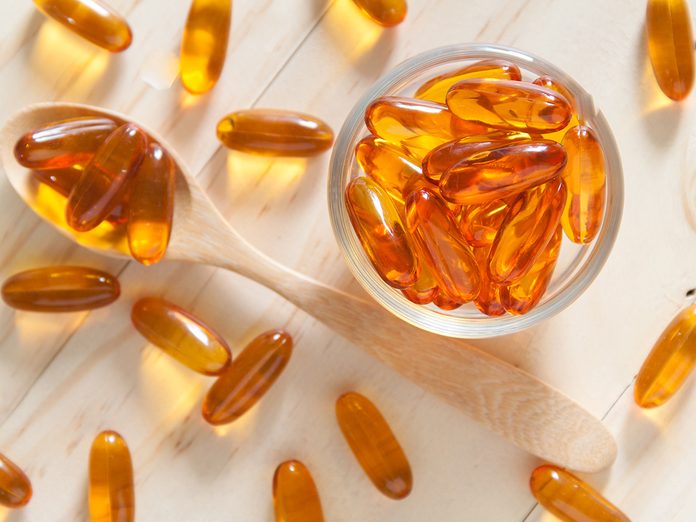
Fish oils
The fat in fish contains a form of polyunsaturated fatty acids called omega-3. These differ from the polyunsaturated fatty acids found in vegetable oils (called omega-6), and they have different effects on the body.
The two most potent forms of omega-3, eicosapentaenoic acid (EPA) and docosahexaenoic acid (DHA), are found in abundance in cold-water fish such as salmon, trout, mackerel and tuna.
What do fish oils do?
Omega-3 fatty acids are found in all cells and play a key role in a range of vital body processes, from blood pressure and blood clotting to inflammation and immunity. In addition to their benefits after surgery, they may be useful for preventing or treating many health conditions.
Benefits of fish oils
Omega-3 fatty acids strengthen the heart’s electrical system, preventing heart rhythm abnormalities. Within the artery walls, omega-3 fatty acids inhibit inflammation, which is a factor in plaque build-up. Therapeutic doses of fish oils are therefore used to prevent the re-blockage of arteries that commonly occurs after angioplasty, a procedure in which a small balloon is used to open blocked blood vessels.
Omega-3 fatty acids are also effective general anti-inflammatories. Other preliminary evidence suggests that fish oils have many additional benefits, including prevention of graft failure after heart bypass surgery.
How to take fish oils
If you have had bypass surgery with grafts made from veins: take 4 grams of fish oils a day.
As an anti-inflammatory: take 30 to 40 milligrams of EPA and DHA per kilogram of your body weight a day.
For doses greater than 3 grams, you should consult your doctor because of an increased risk of bleeding.
Take fish oils with meals. Supplements may be easier to tolerate if you take them in divided doses. Try 1 gram 3 times a day instead of 3 grams in one sitting.
Don’t buy cod liver oil to get your omega-3 fatty acids. It contains high amounts of vitamin A and vitamin D, both of which can be toxic in large doses.
Discover which vitamins doctors take every day.
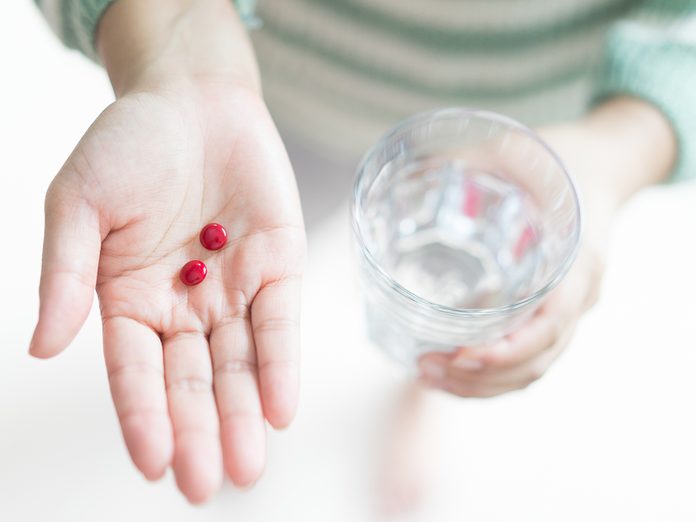
Iron
Needed throughout the body, iron is an essential part of haemoglobin, the oxygen-carrying component of red blood cells. Iron is also found in myoglobin, which supplies oxygen to the muscles of the body, and it is part of many enzymes and immune system compounds.
The body, which gets most of the iron it requires from food, carefully monitors its iron status, absorbing more of the mineral when demand is high and less when stores of it are adequate. Because the body loses iron when bleeding, it may be recommended in supplemental doses after surgery.
Iron-rich foods include liver, beef and lamb. Oysters, mussels and clams also contain iron. Vegetarians can get plenty of iron from beans and peas, leafy greens, dried fruits (apricots, raisins), seeds (pumpkin, squash, sunflower) and fortified breakfast cereals. Brewer’s yeast, kelp, blackstrap molasses and wheat bran are also exceptionally good sources.
What does iron do?
By helping the blood and muscles deliver oxygen, iron supplies energy to every cell in the body.
Benefits of iron
Keeping your body well supplied with iron provides energy, helps your immune system function at its best and gives your mind an edge. Studies show that even mild iron deficiency-well short of the levels commonly associated with anemia-can cause adults to have a short attention span and teens to do poorly in school. (Worried about Alzheimer’s? Feed your brain with the MIND diet meal plan.)
How to take iron
When a doctor recommends it, iron is typically taken in a form called ferrous salts-often ferrous sulfate, ferrous fumarate or ferrous gluconate. A typical prescribed dose provides about 30 milligrams of iron 1 to 3 times a day.
One of the most common forms of iron supplement (ferrous sulfate) is inexpensive but can cause constipation and stomach upset. Other forms, such as ferrous fumarate or ferrous gluconate, may be easier to tolerate. Iron-rich herbal tonics, which are sold in health food stores, may be even gentler.
Iron is best absorbed when taken on an empty stomach, 1 hour before or 2 hours after eating. If iron upsets your stomach, have it with meals, preferably with a small amount of meat and a food or drink rich in vitamin C (such as broccoli or orange juice) to help boost the amount of iron your body absorbs. Some foods impair your ability to absorb ferrous salts; these include coffee, chocolate, eggs, dairy products, spinach and whole-grain breads and cereals and supplements with zinc or manganese.
Next, check out 30 simple things you can do daily to boost your bone health.